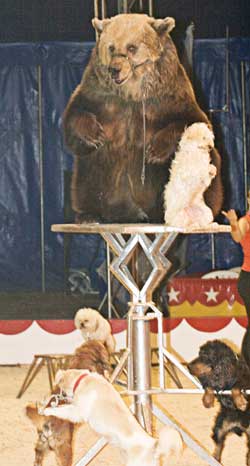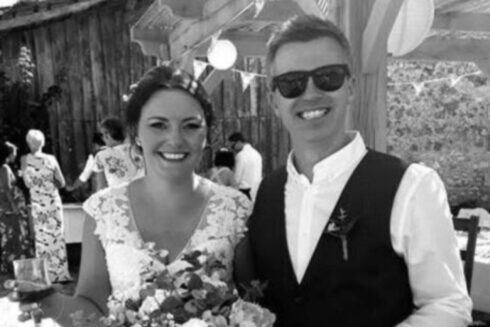
In the 50th anniversary since its first publication, Carlos Pranger looks at the events that led to seminal book, South from Granada
IN 1954, German magazine Der Monat commissioned Gerald Brenan to write an article about Spain. Rereading his notes and searching through his memories, Brenan realized he had sufficient material for a book and so South from Granada, the record of his life in la Alpujarra, was born.
The book gives a slightly different picture from some of the letters he wrote at the time describing his dissatisfactions, his loneliness and periods of boredom. Every book is an invention and what Brenan did was to make a selection of material on his recollections of his years in la Alpujarra.
Although he continued to visit Yegen until 1934, he left the village in 1924 and South from Granada was published in 1957. “As one grows older one becomes a different person, inheriting by some strange magic a young man’s memories.” Brenan wrote in a letter to Frances Partridge. The book was written from the perspectives created by memory and the passage of time.
Gerald Brenan arrived at La Coruña, in the north west corner of Spain, on September 28, 1919. He travelled south on foot, or by train in third-class carriages and he slept in dirty inns with fleas and bedbugs.
After spending some time in Granada, he decided to explore la Alpujarra, a mountainous area full of barrancos (ravines), which the Berbers colonized in the Middle Ages. They built an intricate system of acequias (irrigation channels) that descend horizontally to irrigate bancales (terraces) along the mountainside. It was this multicoloured landscape of bancales, acequias and barrancos surrounded by chesnut trees, poplars and oaks that attracted Brenan’s attention. “I knew that I had never seen a more beautiful country than this Spain,” Hope Johnstone was told in a letter from Brenan in November 1919.
But apart from beauty, he had romantic ideas and was also looking for poverty. Spain came to fulfil his desires for reality.
Arrival in Yegen
After two months looking for a house and ill with dysentery, he finally reached the village of Yegen. At that point Brenan felt desperate and was terrified of failing in his objectives. He did not want to return to England. Probably the strongest reason for him to come to Spain, apart from its cheapness, was to run away from his authoritarian father who wanted his son to follow in his military career footsteps.
Yegen was similar to a Berber village in the North of Africa. He described it as lying on the hillside like a group of interconnected drab grey boxes “as if made by insects.” There were no paved streets, only cobbled paths frequented by mules and goats. The animals, which were stabled on the ground floors of the houses, gave the pueblo a particular farmyard smell.
None of the houses had electricity or running water. There were no lavatories. Yegen was one of the poorest pueblos of la Alpujarra and was ruled by two rival caciques (landlords) who owned most of the land.
Although the land was fertile and well watered, Yegen was full of landless labourers who went unemployed for months. There was no real social aid, either from the Church or the Government, so the local shops worked on credit so that these labourers and their families would not die of hunger.
Gerald Brenan finally found a house and moved into it on January 13, 1920. One of his first experiences of the village came when he went to the fountain to get some water. There was a group of women talking next to the fountain and they fell silent. Suddenly they seized his water container and took it back to his house. This was a job for women and Brenan had broken the village rules.
“I became a tourist centre and caused great merriment,” he wrote in a letter to Ralph Partridge of his early days in the village.
After this, he decided to employ a maid called ‘Black Maria.’ In his book, Brenan describes Maria as little and energetic, “her skin shrivelled like the side of the Sierra from being washed, not in water, but in strong aniseed spirit.” She introduced him into the local world of witchcraft, telling him that the new road had frightened the witches away and that in the old days they used to fly around every night. Brenan tried, with not much success, one of her love potions.
Touching kindness
Every morning Brenan stood on his azotea (flat roof) watching the sun rise. The mountains seemed bare and vulnerable. They were not steep or rough, but modelled by smooth ravines. Yegen is suspended 4,000 feet above sea level and there was always a breeze that carried sounds from miles away of running streams and of workers talking in the fields.
In South from Granada, Brenan describes the sense of “oceans of air.”
Compared to the rest of the villagers, Brenan had money. The rich, as a class, were thought of as wicked, but Brenan took the trouble to learn the local customs and treated people with charm and generosity.
Soon after he had settled in, although he still stirred the villagers’ curiosity, they started to accept him. He was invited to weddings and baptisms and was greeted in the street as “Don Geraldo.”
Brenan found a natural generosity in the people. In a 1920 letter to Dora Carrington, he claimed: “This kindness is more touching in that I have done nothing to deserve it.”
The villagers were not surprised he had chosen Yegen to live. Because the reputation of Yegen and its hospitality were at stake, the stranger had to be well treated. The priest used to invite him to church. He was conducted to the bishop’s throne, which was elevated beside the bishop’s altar and here he had to watch and be watched.
Brenan was fascinated by the gossip; the face-to-face smiles and the behind-the-back betrayals. The village, although it seemed calm on the surface, had its dramas and scandals.
“Don Horacio, the priest, fell in love with the colossally fat wife of the doctor and had to leave,” as recounted in the seminal book.
In late September, he helped with the harvest and spent all day under the hot sun, then watched while the pared mules made circles over the cereal on the eras, beautiful stone-paved threshing floors found all over la Alpujarra.
“The mountainside dotted with lights, voices, talking, singing, guitars. In the night wind, the beaten corn is thrown into the air. The grain rattles down like pebbles, the chaff, a cloud of golden dust is carried away.”
Apart from taking part in village life or observing it, Gerald Brenan’s two main occupations while he was living in Yegen were reading and writing.
But sometimes this was not enough.
Although he was comfortable in the village, he occasionally felt lonely, bored and depressed. In a letter to Ralph Partridge, dated March 1920, he writes: “I am gloomy myself and so is everything about me… all day hail storms have been sweeping past, the sky grey, the air cold…”
He liked the people in Yegen but as, as he told Dora Carrington in one of their regular correspondences: “I am as much alone with them as I am with the walls and the trees.” He wanted a mistress. He started organizing dances at his house and they took place every month depending on his funds. Brenan supplied wine, aguardiente (brandy distilled from fermented fruit juice) and tobacco.
The villagers and the musicians (two guitars and a lute) would dance and play in the granary. The mothers of Yegen brought their daughters and watched them dance, the fiestas often ending around 3 o’clock in the morning.
Finally, Gerald discovered love with Juliana, a girl who belonged to the poorest family in the village. She was to be the mother of Brenan’s only child, Miranda.
Fifty years have passed since the first publication of South from Granada and Yegen has changed completely. Today, there are not any ‘Black Marias’ anymore, they are blonde and come from Brighton and all the witches have left for ever, probably horrified by the new buildings.
The village is motorized; every young man has a car in which he zooms around playing loud techno music.
The land is semi-abandoned, only a few patches of tomatoes remain and the harvest is something of the past.
There are no dances at night, they have been substituted by the sound of television, and the young go to discos in nearby villages.
Gerald Brenan absorbed and described the old way of life in Yegen with delicacy and perception. South from Granada is an important account of times that have vanished for ever.
Carlos Pranger is the godson of Gerald Brenan and is currently editing a book of the writer’s unpublished letters.






